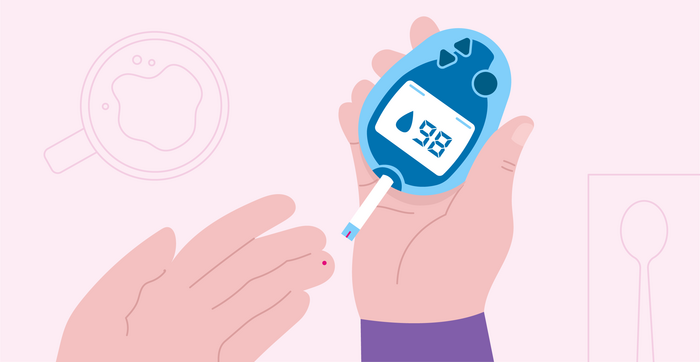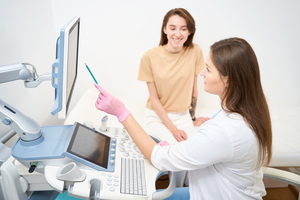Key points
- Diabetes management requires a comprehensive approach including diet modification, regular exercise, and daily foot inspection.
- Regular monitoring of blood sugar and blood pressure levels is crucial for managing diabetes.
- Diabetes patients should have an annual eye exam to detect and treat diabetic retinopathy.
- Understanding the nature of diabetes and identifying personal risk factors can help in managing the condition.
- Regular monitoring of blood sugar and blood pressure levels is essential for people with diabetes. This can help control blood sugar levels, identify potential causes of fluctuations, and ensure the effectiveness of diabetes medications. Regular eye exams are also crucial to prevent, detect, and treat diabetic retinopathy, a condition that can lead to vision loss.

Diabetes is a chronic condition that requires careful management to prevent complications including kidney damage and heart disease. If you are living with diabetes, it’s important to practice self-care around the clock so you can stay healthy and prevent your condition from advancing.
The following diabetes self-care tips can help you improve your symptoms and quality of life. If you need additional help with managing diabetes, use Solv to find diabetes testing locations in your area.
Learn the ins and outs of diabetes
If you’ve recently been diagnosed with diabetes, the National Institutes of Health (NIH) recommends learning as much as you can about your condition so you can become the primary expert about your personal health. Learn the difference between type 1 and type 2 diabetes, and identify any lifestyle behaviors you practice that may have increased your risk for diabetes. This can help you determine whether you need to make any necessary changes and improvements to your lifestyle, such as exercising more frequently or eating healthier foods.

Increase your activity level
Exercising regularly is very important, as exercise can naturally help regulate your blood sugar, blood pressure, cholesterol, and hormone levels, according to the National Kidney Foundation. Exercise can also help you maintain a healthy weight and lose excess weight that may have been caused by a combination of inactivity and unhealthy food choices.
Start increasing your physical activity level day by day, even if it means starting out slowly. The National Kidney Foundation offers examples such as taking the stairs instead of the elevator or escalator, and parking farther away from destinations so you can spend more time walking. It can be helpful to do the exercises you truly enjoy so you don’t come to resent being active. Dancing, gardening, and hiking are examples of fun exercises that can help you stay active and healthy.

Modify your diet
According to the NIH, obesity and being overweight are risk factors for diabetes. These conditions are often caused by a combination of poor nutrition and lack of physical activity. The next diabetes self-care tip you can practice after starting an exercise routine is to make healthy changes to your diet.
According to the NIH, it may be helpful to start by eliminating foods in your diet that are high in sugar, sodium, and unhealthy fats, as these foods can upset your hormonal imbalance and increase the risk of insulin resistance. This includes processed foods like cakes, cookies, frozen meals, and meats like sausages, pepperoni, and bacon.
Next, increase your intake of whole foods that are loaded with nutrients that can naturally regulate your blood sugar. The NIH recommends including fruits, vegetables, nuts, seeds, low-fat dairy, poultry, fish, and whole grains in your diabetes diet.

Inspect your feet daily
According to the NIH, people who are living with diabetes are highly prone to developing foot sores and ulcers. This can occur due to diabetic neuropathy, which is a type of nerve damage caused by having chronically high blood sugar levels.
Over time, uncontrolled blood sugar can damage your nerves, which can make it more difficult for you to feel pain and sores on your feet. It can also damage your blood vessels, which makes it more difficult for wounds to heal. According to the NIH, many times, wounds in people with diabetes heal very slowly or never heal at all—increasing the risk for complications including infection, gangrene, and amputation.
The Department of Nursing at the University of Southern California recommends inspecting your feet every day. This is an important part of diabetes care that can keep you mobile and reduce your risk for amputation. Inspecting your feet can help you detect sores, puncture wounds, and other foot problems right away so they can be treated by your doctor promptly.
Other steps you may consider include washing your feet daily, wearing properly fitting shoes, wearing socks and shoes at all times, and trimming your toenails.

Monitor your blood sugar level daily
Many doctors recommend checking your blood sugar level at least once a day. According to the NIH, doing this can help you control your blood sugar level and identify potential causes of highs and lows such as certain foods, activities, and events. It can also help you determine whether your diabetes medications are working as expected, or if you need to see a doctor to discuss your current treatment plan.
Ask your doctor how often you should be checking your blood sugar based on your condition and lifestyle. Your doctor may recommend checking it multiple times a day if you are newly diagnosed, have started a new diabetes medication, or are highly active in sports or other physical activities.

Check your blood pressure daily
People who are managing diabetes are two times as likely to have a high blood pressure than those without diabetes, according to Johns Hopkins Medicine. Additionally, people with both diabetes and high blood pressure are four times as likely to develop heart disease than someone without either condition. High blood pressure increases the risk of stroke, aneurysms, and dementia.
Checking your blood pressure every day is highly important if you are living with diabetes. The National Institutes of Health says that the blood pressure goal for most people with diabetes is at or below 140/90 mmHg.
Ask your doctor what your blood pressure goal should be, and work toward meeting that number every day. According to the CDC, factors that contribute to high blood pressure include physical inactivity, a high-sodium diet, tobacco use, and heavy alcohol use. Consider using an at-home blood pressure monitor to check your blood pressure and monitor it daily. At-home blood pressure monitors are relatively inexpensive and can be purchased from a wide range of drugstores and retailers.

Get an annual eye exam
Uncontrolled diabetes increases your risk for blood vessel damage in the eyes, also known as diabetic retinopathy. The NIH reports that diabetic retinopathy can lead to blurred or partial vision, or to blindness when not caught and treated early on. Diabetes is the primary risk factor for this eye condition, though other risk factors include smoking, high blood pressure, and high cholesterol.
Visit your eye doctor regularly for an eye exam, and ask how often you should be screened if you have diabetes. Most doctors, including the NIH, recommend having a yearly eye exam to prevent, detect, and treat diabetic retinopathy.
If you think you may have diabetes, use Solv to find a diabetes test provider in your area. Solv can provide you with a list of highly-rated diabetes test providers and the opportunity to make a same-day appointment at a nearby walk-in clinic. Solv’s mission is to make everyday healthcare easier for you and your family.
FAQs
How important is exercise in managing diabetes?
Regular exercise is very important as it helps regulate blood sugar, blood pressure, cholesterol, and hormone levels.
What dietary changes are recommended for a person living with diabetes?
It is advised to eliminate foods high in sugar, sodium, and unhealthy fats, and increase intake of whole foods rich in nutrients that can regulate blood sugar.
Why is daily foot inspection necessary for people with diabetes?
People with diabetes are prone to developing foot sores and ulcers due to nerve damage caused by high blood sugar levels. Daily foot inspection can help detect these early.
How often should a person with diabetes monitor their blood sugar level?
Many doctors recommend checking blood sugar level at least once a day, but frequency may vary based on the individual's condition and lifestyle.
Why is regular eye examination important for people with diabetes?
Uncontrolled diabetes increases the risk for diabetic retinopathy, which can lead to vision problems. Regular eye exams can help detect and treat this condition early.
How often should I monitor my blood sugar level?
Many doctors recommend checking your blood sugar level at least once a day. However, your doctor may recommend checking it multiple times a day if you are newly diagnosed, have started a new diabetes medication, or are highly active in sports or other physical activities.
Why is it important to check blood pressure daily for someone with diabetes?
People managing diabetes are twice as likely to have high blood pressure than those without diabetes. High blood pressure increases the risk of stroke, aneurysms, and dementia. Checking your blood pressure daily can help you control it and meet your blood pressure goal.
How often should I get an eye exam if I have diabetes?
Most doctors, including the NIH, recommend having a yearly eye exam to prevent, detect, and treat diabetic retinopathy, a condition that can lead to blurred or partial vision, or to blindness when not caught and treated early on.









